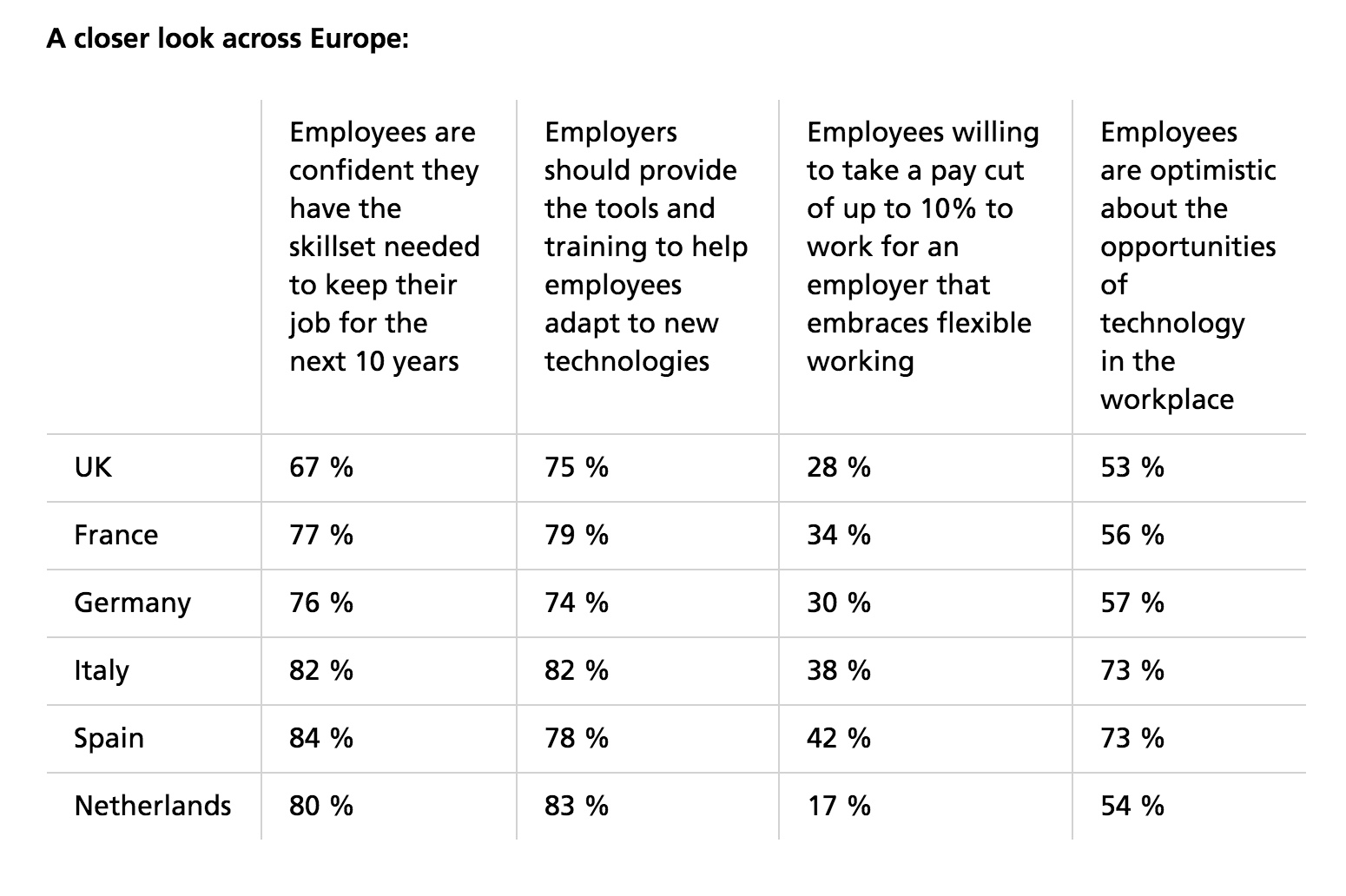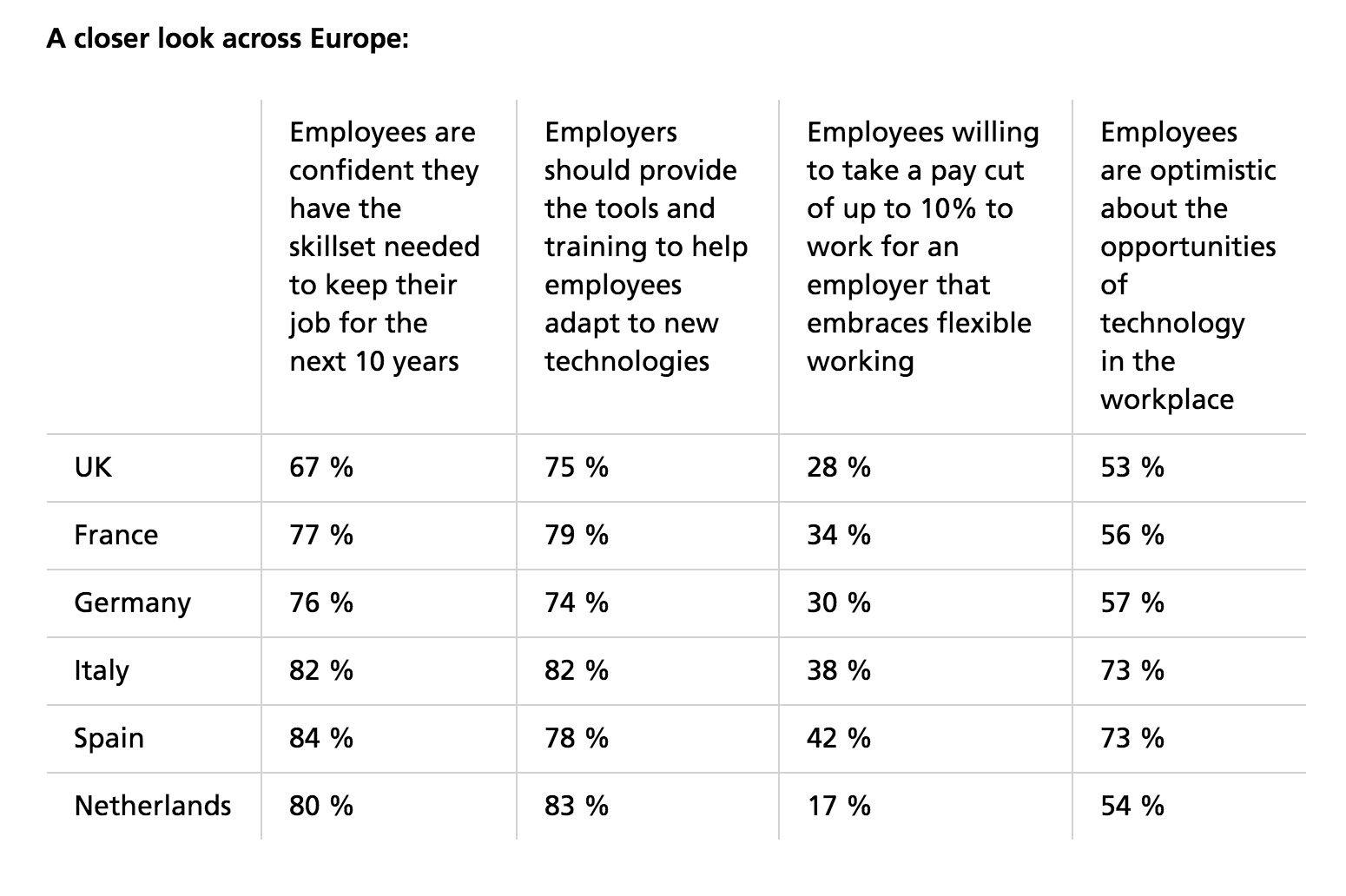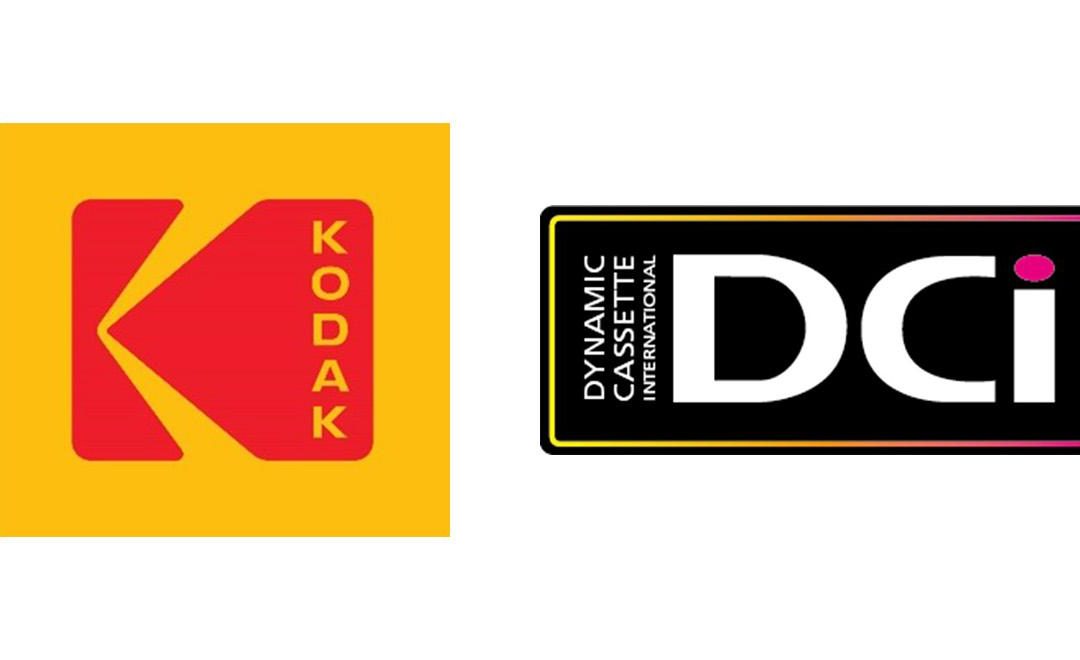 Ricoh Europe report into the Future of Work highlights that despite optimism around the role of technology at work, four in five workers expect employers to help extend their careers and two thirds of European workers expect employers to help solve societal issues.
Ricoh Europe report into the Future of Work highlights that despite optimism around the role of technology at work, four in five workers expect employers to help extend their careers and two thirds of European workers expect employers to help solve societal issues.
Workers are confident they have the skills to thrive in their careers but expect employers to help them adapt to changing work practices, according to research from Ricoh Europe. The research supports the new Future of Work report, produced by Arup, which explores how technology, collaboration and sustainability should be front of mind for those businesses looking to empower employees.
Despite the fact that automation and technology are likely to replace certain jobs in the future, a Ricoh Europe study of 3,000 European workers found that employees are open to the potential benefits that come with these changes. The majority (61 percent) are optimistic about the opportunities that technology will bring to the workplace, enabling them to work more flexibly and collaboratively. More than three-quarters (77 percent) are also confident that they have the necessary skillset to keep and progress their current job over the next ten years.
The report shows that as organisations implement more tech-based solutions such as robotics and artificial intelligence into their workplace, the onus is on employers to ensure employees have the right skills to shape and extend their careers. Four out of five (81 percent) workers expect their employer to provide tools and training to adapt to new roles as technology changes.
David Mills, CEO, Ricoh Europe commented: “The speed of new technologies impacting the market is faster than ever before. This trend shows no sign of abating. It will continue to change how people work for the better, replacing laborious tasks and freeing people up to deliver higher-value, more fulfilling work. As older generations extend their careers and younger generations join the workforce, it’s only natural that employees of all ages expect their employer to harness the positive impacts from technology to upskill and empower them.”
While collaboration and flexibility will be central to the workplace of the future, the report dispels the myth that the physical office will be a thing of the past. Only 28 percent of workers said that offices would not exist in the next ten years and that everyone would work remotely. However, nearly three-quarters (74 percent) of workers believe flexible working will be written into contracts in the future – and a third (32 percent) would take a ten percent pay cut to work for an employer that embraces this practice.
Mills concluded: “The best workplaces put human collaboration and flexibility at the heart of their business. Breaking away from traditional ways of working could prove invaluable for organisations – helping to empower, motivate and ultimately retain talent. For example, at Ricoh’s global head office, we allow employees to spend time performing a different role within the business. It is proving to be a great way to help develop skills, share expertise and harness an open and inclusive culture.”
The Future of Work report analyses more than 100 sources to bring together best-in-class thinking and use cases on how work will shape employment. It finds that technology will fuel new modes of collaboration between humans, human and machines and machines with other machines (automation).









